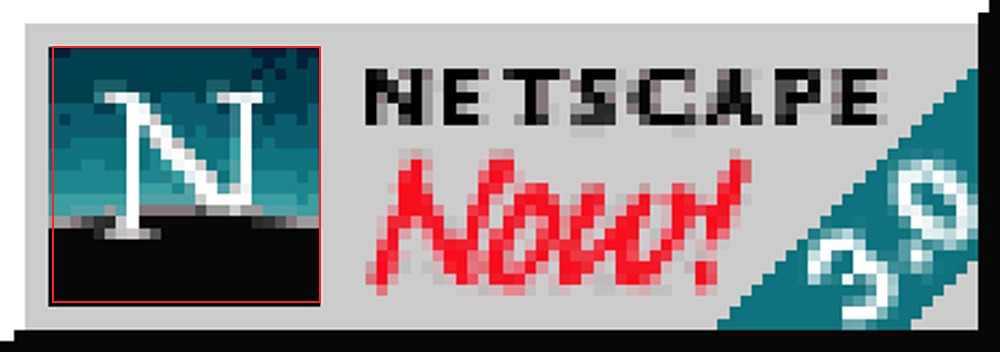PNG has been updated for the first time in 22 years — new spec supports HDR and animation
-
Yeah, this was my first thought. How many slightly older, no-longer-being-updated pieces of software will fail to open the new version? Hopefully it’s built in a way that it just falls back to legacy and ignores the extra information so you can at least load the file.
Popular photo and video editing apps like Photoshop, DaVinci Resolve, and Avid Media Composer already support it, alongside Chrome, Safari, and Firefox. Apple’s iOS and macOS also work with the new file standard.
This is all the article mentions. I hope you’re right about the backwards compatibility.
-
Probably means there will be new PNGs that old software won't be able to open.
It makes sense, right? Is there a way around that when adding new features to a file format?
The alternative is to make another file format for clarity, but it's not really what you want to do.
-
This post did not contain any content.
Fracturing support for a legacy format makes so much more sense than actually supporting a modern format like JXL, right?
-
But is it backwards compatible with an old version that can't be updated?
Some of this is paving the cowpath - the animated PNG stuff is 20 years old and e.g. Firefox has had support since March 2007.
-
Fracturing support for a legacy format makes so much more sense than actually supporting a modern format like JXL, right?
If this actually stands a chance of taking off, I'll honestly take what I can get to normalise HDR images
-
The current situation with megabytes of JavaScript is pretty bad, but at the time, there was still a fair bit of dialup active, and mobile web was just starting to be a thing - on EDGE and barely 3G. It would take minutes to load.
Also, Steve Jobs had it in for Flash and that’s what ultimately killed it off, I think.
Yes, the iPhone did not and never has supported Flash. At least not officially from Apple. There was support, albeit not quite 100% complete, on Windows CE/PocketPC at the time, though. That was one of the things that let me lord it over early iPhone adopters back in the day — my pocket nerd computer could play Homestar Runner videos, and their stupid expensive bauble couldn't. So there.
-
Yeah, this was my first thought. How many slightly older, no-longer-being-updated pieces of software will fail to open the new version? Hopefully it’s built in a way that it just falls back to legacy and ignores the extra information so you can at least load the file.
I mean, that's already how animated .gifs work. If somehow you manage to load one into a viewer that doesn't support the animation functionality it will at least dutifully display the first frame.
How the hell you would manage to do that in this day and age escapes me, but there were a fair few years in the early '90s where you might run into that sort of thing.
-
But is it backwards compatible with an old version that can't be updated?
Yes that's why its so great
-
I could have sworn animated pngs were a thing in the Macromedia Fireworks days. Really dating myself with that ref.
I miss fireworks. For me that was the best. I've never jived with Photoshop or is alternatives.
I have since landed on krita, aseprite and inkscape. But i still miss the workflow I got used to with fireworks.
-
APNG is what they're using in v3, so all many libraries need to do* is update that code for HDR.
* surely that's easy, right?
I mean, on a Linux system that's not riddled with flatpak / snap / ... You'd basically only need to update libpng and you'd be good.
-
Popular photo and video editing apps like Photoshop, DaVinci Resolve, and Avid Media Composer already support it, alongside Chrome, Safari, and Firefox. Apple’s iOS and macOS also work with the new file standard.
This is all the article mentions. I hope you’re right about the backwards compatibility.
I remember the Wild West Web days when it was a toss up seeing if animated Gifs, transparencies in images, or the specific hexadecimal for your personal shade of purple you created would render properly between browsers.

-
This post did not contain any content.
I still don't have an HDR display. Hopefully some VR headset in the near future will support it.
-
It makes sense, right? Is there a way around that when adding new features to a file format?
The alternative is to make another file format for clarity, but it's not really what you want to do.
That depends. Something like HDR should be able to fall back to non-HDR since it largely just adds data, so if the format specifies that extra information is ignored, there's a chance it works fine.
-
I mean, that's already how animated .gifs work. If somehow you manage to load one into a viewer that doesn't support the animation functionality it will at least dutifully display the first frame.
How the hell you would manage to do that in this day and age escapes me, but there were a fair few years in the early '90s where you might run into that sort of thing.
Probably most notably the iOS photos app until like 2014.
Edit: just checked. iOS 11 in 2017 added gif support to photos
I’ll also add, safari supported animated gifs for a long time before that and you could still save them in safari like any other image. But photos would only show the first frame like you said. When 11 came out they played like normal.
-
I mean, that's already how animated .gifs work. If somehow you manage to load one into a viewer that doesn't support the animation functionality it will at least dutifully display the first frame.
How the hell you would manage to do that in this day and age escapes me, but there were a fair few years in the early '90s where you might run into that sort of thing.
One example is piefed unfortunately. Animated gifs as avatar or banner don't animate currently as far as I can tell.
-
I remember the Wild West Web days when it was a toss up seeing if animated Gifs, transparencies in images, or the specific hexadecimal for your personal shade of purple you created would render properly between browsers.


-
One example is piefed unfortunately. Animated gifs as avatar or banner don't animate currently as far as I can tell.
Those are displayed in browser, right? The only reason that would be happening is if Piefeed is recompressing images and their code is not smart enough to identify an animated .gif and act accordingly.
-
Those are displayed in browser, right? The only reason that would be happening is if Piefeed is recompressing images and their code is not smart enough to identify an animated .gif and act accordingly.
Yeah in browser. I should probably open an issue ticket if nobody else noticed yet.
-
Yeah in browser. I should probably open an issue ticket if nobody else noticed yet.
I'll bet you a shiny penny that's what it is. The backend recompresses things to some other format, probably a low bitrate JPEG, in order to save space and/or in case some joker uploads a 90 megabyte uncompressed TIFF image to use as a profile pic, or something.
-
Lies! That gif is sped up 2000%!





